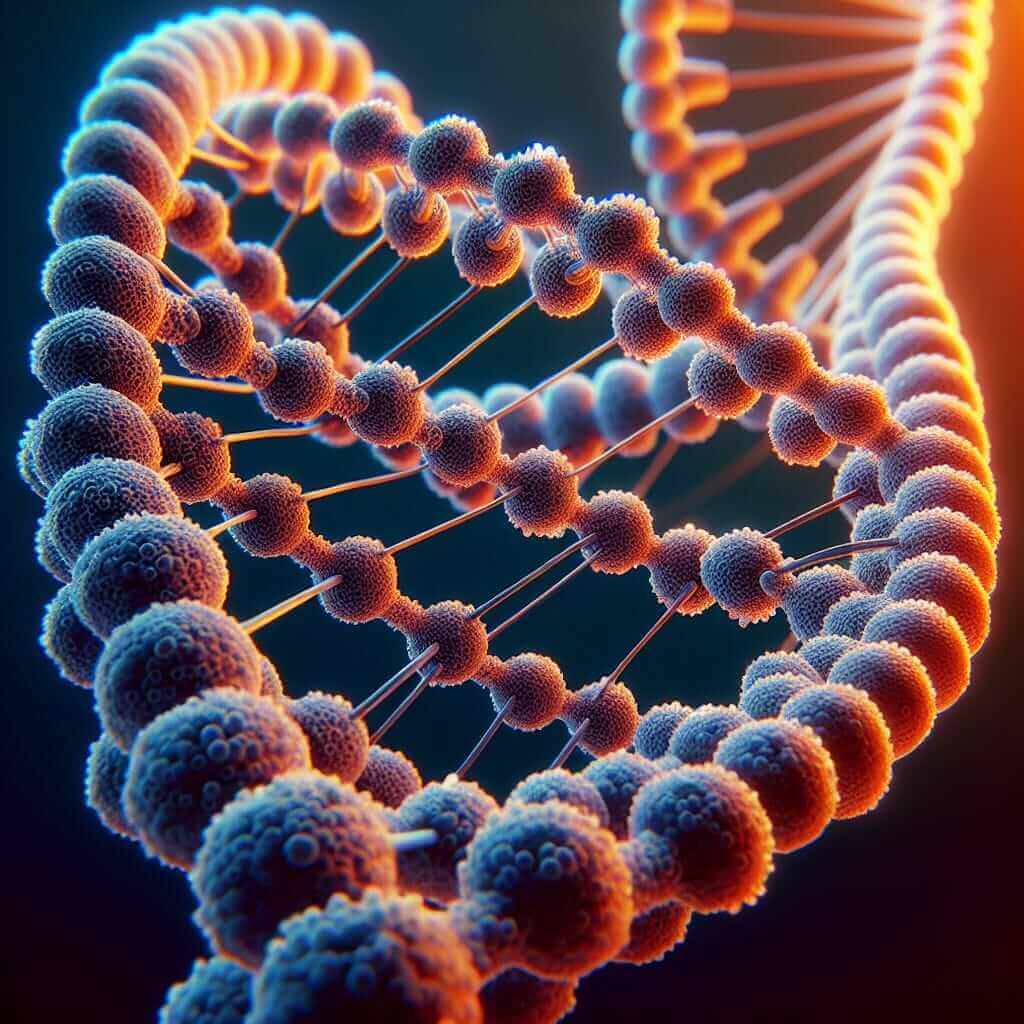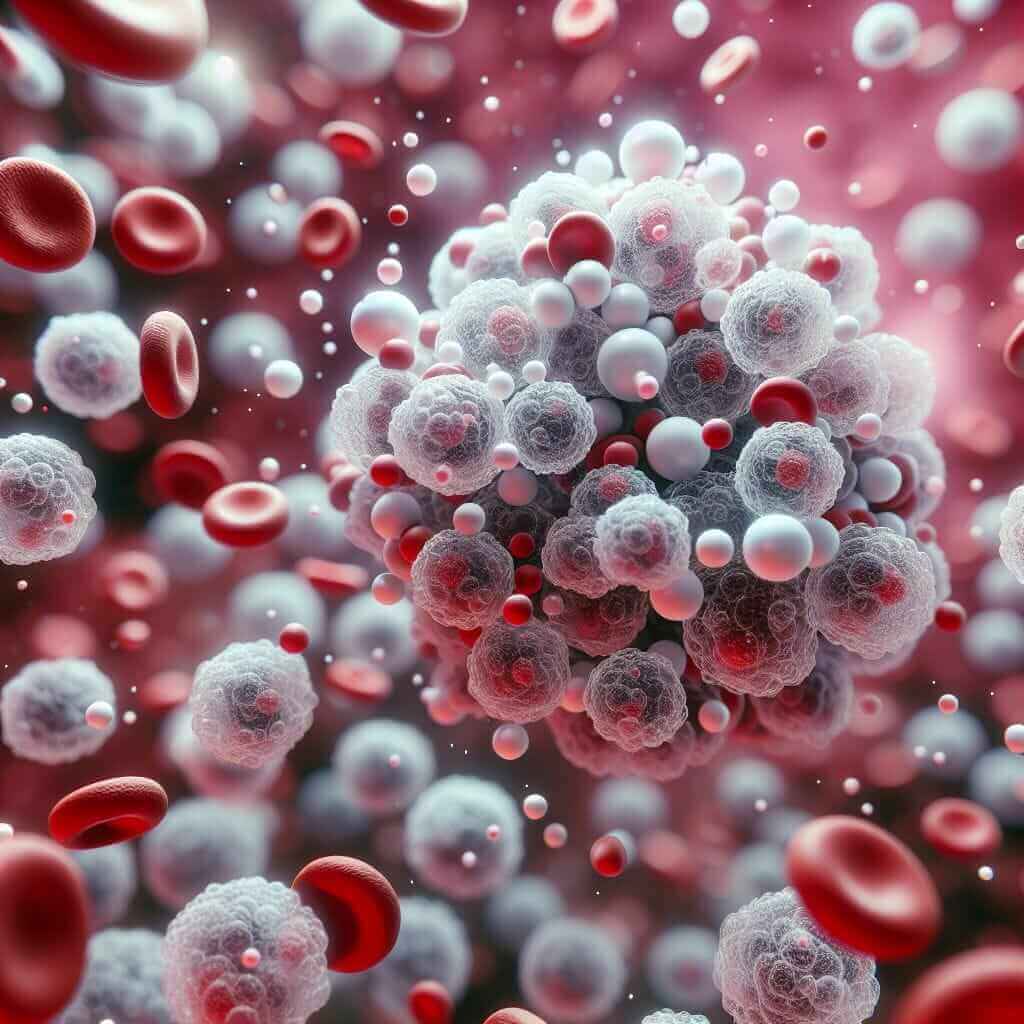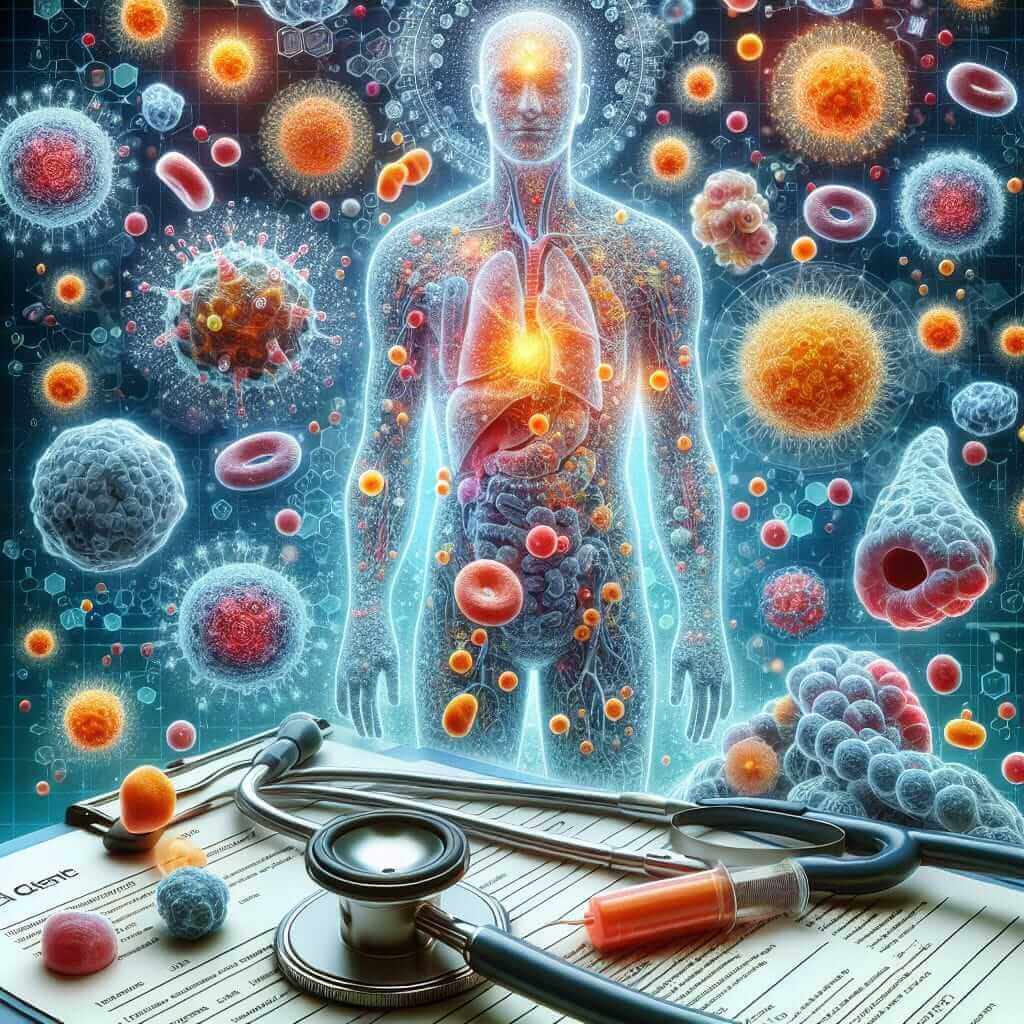The fascinating world of genetics frequently finds its way into IELTS reading materials, especially in passages related to health and science. Understanding “DNA” and its related vocabulary is crucial for navigating these texts successfully. This article will equip you with the essential vocabulary and examination strategies you need to approach DNA-themed IELTS passages with confidence.
Table Of Contents
DNA: A Fundamental Building Block
DNA (n.) /ˌdiː.ɛnˈeɪ/ Deoxyribonucleic acid: The molecule inside cells that carries genetic information.
Example: Scientists can analyze DNA to determine a person’s risk of developing certain diseases.
Here are some important words related to DNA that you might encounter:
- Gene (n.) /dʒiːn/: A basic unit of heredity that is responsible for a particular characteristic.
- Example: The gene for brown eyes is dominant over the gene for blue eyes.
- Chromosome (n.) /ˈkroʊ.mə.soʊm/: A thread-like structure found in the nucleus of most living cells, carrying genetic information in the form of genes.
- Example: Humans have 23 pairs of chromosomes.
- Genetic (adj.) /dʒəˈnɛt.ɪk/: Relating to genes or heredity.
- Example: Some diseases, like cystic fibrosis, are genetic.
- Heredity (n.) /həˈred.ə.t̬i/: The passing on of physical or mental characteristics genetically from one generation to another.
- Example: Heredity plays a significant role in determining a person’s height.
 DNA Structure
DNA Structure
DNA in IELTS Examinations
The concept of DNA frequently appears in the IELTS Reading and Listening sections, particularly in passages discussing:
- Health: Genetic disorders, gene therapy, personalized medicine
- Science: Evolution, forensics, biotechnology
- Social Issues: Genetic testing, cloning, GMOs
Mastering DNA Vocabulary for IELTS
Let’s examine how this vocabulary can be applied to different sections of the IELTS exam:
IELTS Reading:
“Scientists have made significant breakthroughs in understanding the human genome, the complete set of DNA instructions found in our cells. This knowledge has paved the way for the development of gene therapies that could potentially cure genetic diseases.”
Analysis: This passage requires you to understand the relationship between DNA, genes, and the genome. You might be asked to identify the main idea, answer specific questions about gene therapy, or complete a summary of the passage.
IELTS Listening:
You might hear a lecture discussing the ethical implications of genetic testing, with the lecturer using phrases like:
- “Genetic screening can identify individuals who are predisposed to certain diseases…”
- “…raises concerns about privacy and potential discrimination based on someone’s genetic makeup.”
Analysis: You need to pay close attention to the speaker’s tone and the context of these phrases to understand their stance on genetic testing.
Expanding Your Vocabulary
- Mutation (n.) /mjuːˈteɪ.ʃən/: A permanent alteration in the DNA sequence of a gene.
- Example: Exposure to radiation can cause mutations in DNA.
- Genome Sequencing (n.) /ˈdʒiː.noʊm ˈsiː.kwən.sɪŋ/: The process of determining the complete DNA sequence of an organism.
- Example: Genome sequencing has revolutionized our understanding of human evolution.
- Genetic Engineering (n.) /dʒəˈnɛt.ɪk ˌɛn.dʒɪˈnɪr.ɪŋ/: The deliberate modification of the characteristics of an organism by manipulating its genetic material.
- Example: Genetic engineering has the potential to create crops that are resistant to disease.
- Inherited (adj.) /ɪnˈher.ɪ.t̬ɪd/: A characteristic passed from a parent to their offspring through genes.
- Example: Blue eyes are an inherited trait.
Conclusion
Mastering the vocabulary surrounding DNA is not just about memorizing definitions. It’s about understanding the concepts and being able to apply this knowledge effectively in an IELTS context. By familiarizing yourself with these terms and practicing their use, you’ll be well-prepared to tackle even the most challenging DNA-related passages in your IELTS exam. Remember to practice using these words in context through reading articles, listening to lectures, and engaging in discussions on related topics.


